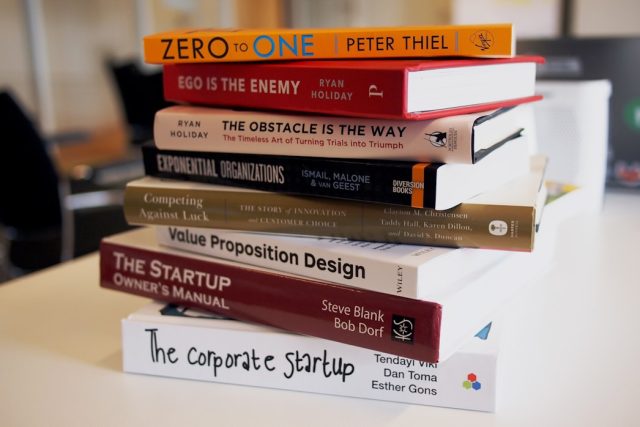The human mind is a complex and intricate system that has fascinated philosophers, scientists, and psychologists for centuries. It serves as the epicenter of our thoughts, emotions, and behaviors, orchestrating our interactions with the world around us. Understanding the workings of the mind is not merely an academic pursuit; it has profound implications for how we navigate our daily lives, make decisions, and relate to others.
The mind is often likened to a vast landscape, filled with various terrains that represent different cognitive processes, from rational thought to emotional responses. This landscape is shaped by a multitude of factors, including our experiences, beliefs, and the social contexts in which we find ourselves. As we delve deeper into the intricacies of the human mind, we uncover layers of complexity that reveal how we perceive reality and make choices.
The interplay between conscious and unconscious processes plays a pivotal role in shaping our understanding of ourselves and the world. Cognitive psychology has made significant strides in mapping these processes, offering insights into how we think, learn, and remember. By exploring the nuances of human cognition, we can better appreciate the remarkable capabilities of our minds while also recognizing the limitations that can lead us astray.
This exploration sets the stage for a deeper understanding of the two systems of thinking that govern our decision-making processes.
Key Takeaways
- The human mind is a complex and powerful tool that influences decision making and behavior.
- There are two systems of thinking: intuitive and rational, each with its own strengths and weaknesses.
- Intuition can be a powerful tool for quick decision making, but it can also be influenced by cognitive biases.
- Cognitive biases can lead to flawed decision making by distorting our perception and judgment.
- Emotions play a significant role in decision making, often influencing our choices more than we realize.
The Two Systems of Thinking
At the heart of cognitive psychology lies the concept of dual-process theory, which posits that human thinking operates through two distinct systems: System 1 and System 2. System 1 is often described as fast, automatic, and intuitive. It is responsible for quick judgments and decisions that require little conscious effort.
This system is deeply rooted in our evolutionary history, allowing us to respond rapidly to threats and opportunities in our environment. For instance, when we encounter a snake on a hiking trail, our immediate reaction to jump back is a product of System 1 thinking. This system relies heavily on heuristics—mental shortcuts that simplify decision-making but can sometimes lead to errors in judgment.
In contrast, System 2 is characterized by slow, deliberate, and analytical thinking. It engages in more complex reasoning processes and requires conscious effort and attention. When faced with a challenging math problem or a moral dilemma, we activate System 2 to weigh options carefully and consider potential outcomes.
While System 1 is efficient and often effective for routine decisions, it can be prone to biases and oversights. System 2, though more reliable for intricate tasks, can be sluggish and mentally taxing. The interplay between these two systems is crucial for understanding how we navigate choices in everyday life.
Recognizing when to rely on intuition versus when to engage in deeper analysis can significantly enhance our decision-making capabilities.
The Power of Intuition

Intuition is a fascinating aspect of human cognition that often operates beneath the surface of conscious awareness. It embodies the quick judgments and gut feelings that arise without extensive deliberation. Intuitive thinking can be incredibly powerful; it allows individuals to make rapid decisions based on accumulated knowledge and experiences without needing to articulate every step of their reasoning process.
For example, seasoned professionals in fields such as medicine or finance often rely on their intuition to make split-second decisions that can have significant consequences. This ability stems from years of experience and pattern recognition, enabling them to draw on a wealth of implicit knowledge. However, while intuition can be a valuable asset, it is not infallible.
The reliance on gut feelings can lead to errors when faced with unfamiliar situations or when biases cloud judgment. Intuition is influenced by various factors, including emotions, past experiences, and cultural context. As such, it is essential to cultivate an awareness of when intuition serves us well and when it may lead us astray.
By honing our intuitive skills through reflection and experience, we can enhance our ability to make sound decisions while remaining vigilant against the pitfalls that may accompany this instinctive form of thinking.
The Influence of Cognitive Biases
| Cognitive Bias | Description | Impact |
|---|---|---|
| Confirmation Bias | Tendency to search for, interpret, favor, and recall information that confirms one’s preexisting beliefs. | Can lead to ignoring contradictory evidence and making poor decisions. |
| Availability Heuristic | Estimating the likelihood of an event based on how easily it comes to mind. | Can lead to overestimating the probability of rare events and underestimating the probability of common events. |
| Anchoring Bias | Relying too heavily on the first piece of information encountered when making decisions. | Can lead to making decisions based on irrelevant information. |
Cognitive biases are systematic patterns of deviation from norm or rationality in judgment, which can significantly impact our decision-making processes. These biases arise from the mental shortcuts our brains take when processing information, often leading us to make irrational choices or misinterpret situations. For instance, confirmation bias leads individuals to favor information that confirms their preexisting beliefs while disregarding evidence that contradicts them.
This bias can create echo chambers where individuals become increasingly entrenched in their views, making it challenging to engage in constructive dialogue or consider alternative perspectives. Another common cognitive bias is the availability heuristic, which causes people to overestimate the likelihood of events based on how easily examples come to mind. For example, after watching news reports about airplane accidents, an individual may develop an exaggerated fear of flying despite statistical evidence indicating that air travel is one of the safest modes of transportation.
Understanding these biases is crucial for improving decision-making because it allows individuals to recognize when their judgments may be skewed by irrational influences. By actively seeking diverse perspectives and challenging our assumptions, we can mitigate the effects of cognitive biases and make more informed choices.
The Role of Emotions in Decision Making
Emotions play a pivotal role in shaping our decisions and judgments, often acting as powerful motivators that influence our behavior. While traditional models of decision-making emphasized rationality and logic, contemporary research highlights the integral role emotions play in guiding our choices. Emotions can serve as valuable signals that inform us about our preferences and values; for instance, feelings of joy may lead us toward opportunities that align with our passions, while feelings of fear may prompt us to avoid potential risks.
This emotional feedback loop can enhance our decision-making by providing immediate insights into what feels right or wrong. However, emotions can also cloud judgment and lead to impulsive decisions that may not align with our long-term goals. For example, making a purchase out of excitement during a sale may result in buyer’s remorse later on.
Emotional regulation becomes essential in navigating this complex landscape; being aware of our emotional states allows us to pause and reflect before acting on impulse. By cultivating emotional intelligence—our ability to recognize and manage our emotions—we can improve our decision-making processes and strike a balance between emotional insight and rational analysis.
The Impact of Context on Judgment

The context in which decisions are made significantly influences our judgments and choices. Environmental factors such as social norms, cultural background, and situational cues can shape how we perceive options and evaluate outcomes. For instance, research has shown that individuals are more likely to choose healthier food options when dining in a well-lit restaurant with appealing decor compared to a dimly lit fast-food establishment.
This phenomenon illustrates how context can nudge individuals toward certain behaviors without them even realizing it. Moreover, social context plays a crucial role in shaping our decisions through mechanisms such as conformity and peer influence. People often adjust their opinions or behaviors based on what they perceive others are doing or thinking.
This tendency can lead to groupthink—a phenomenon where the desire for harmony within a group results in poor decision-making outcomes due to a lack of critical evaluation. Recognizing the impact of context on judgment empowers individuals to create environments conducive to better decision-making while also encouraging them to question social pressures that may lead them astray.
The Implications for Everyday Life
Understanding the intricacies of human cognition has profound implications for everyday life and decision-making processes. By recognizing the dual systems of thinking—intuitive versus analytical—we can become more mindful of how we approach various situations. For instance, when faced with important life choices such as career changes or relationship decisions, taking the time to engage System 2 thinking can lead to more thoughtful outcomes rather than relying solely on gut feelings.
This awareness encourages individuals to pause and reflect before making hasty decisions that could have lasting consequences. Furthermore, being aware of cognitive biases allows us to challenge our assumptions and seek out diverse perspectives when making decisions. In an increasingly interconnected world where information overload is common, cultivating critical thinking skills becomes essential for navigating complex issues effectively.
By fostering emotional intelligence and understanding how emotions influence our choices, we can enhance our ability to make sound decisions aligned with our values and long-term goals. Ultimately, applying these insights into daily life empowers individuals to become more intentional decision-makers who navigate challenges with greater clarity and confidence.
Applying the Insights to Improve Decision Making
In conclusion, the exploration of the human mind reveals a rich tapestry of cognitive processes that shape our decision-making experiences. By understanding the two systems of thinking—intuitive and analytical—we gain valuable insights into how we approach choices in various contexts. Recognizing the power of intuition while remaining vigilant against cognitive biases allows us to navigate life’s complexities with greater awareness and discernment.
Additionally, acknowledging the role of emotions in decision-making equips us with tools for emotional regulation that enhance our ability to make choices aligned with our values. As we apply these insights in everyday life, we empower ourselves to become more effective decision-makers who are capable of navigating challenges with clarity and purpose. By fostering critical thinking skills and embracing diverse perspectives, we can mitigate the influence of biases while enhancing our capacity for rational analysis.
Ultimately, understanding the intricacies of human cognition not only enriches our personal lives but also contributes positively to our interactions with others and society as a whole. Through this journey into the depths of the human mind, we uncover pathways toward improved decision-making that resonate across all facets of life.
If you’re looking for more information about the team behind our insightful book reviews, consider visiting our “About Us” page. This page provides detailed information about our mission, the expertise of our reviewers, and the origins of our platform. Understanding the background and the values driving our content can enhance your reading experience and provide assurance about the quality of the reviews we publish. You can visit the page by clicking on this link: About Us.
FAQs
What are books for book review?
Books for book review are books that are selected by reviewers to be read and critiqued. These books are often chosen by reviewers based on their interests, expertise, or the specific focus of the publication or platform for which the review will be written.
How are books for book review selected?
Books for book review are typically selected by reviewers based on a variety of factors, including the reviewer’s interests and expertise, the focus of the publication or platform for which the review will be written, and the relevance of the book’s subject matter to the intended audience.
What is the purpose of reviewing books?
The purpose of reviewing books is to provide readers with an informed and critical assessment of a book’s content, style, and overall quality. Book reviews can help readers make informed decisions about which books to read, and they can also provide valuable feedback to authors and publishers.
Who writes book reviews?
Book reviews are written by a variety of individuals, including professional reviewers, academics, authors, and avid readers. Book reviews can be found in newspapers, magazines, literary journals, and online platforms, and they may be written by staff writers, freelance contributors, or guest reviewers.
Where can I find books for book review?
Books for book review can be found in a variety of places, including bookstores, libraries, and online retailers. Publishers and authors may also provide review copies of books to reviewers upon request. Additionally, some publications and platforms may have specific procedures for requesting books for review.



MOST COMMENTED
Book genres
Author Interviews: Insights from Writing Pros
Literary criticism
Top Book Reviews: Engaging Reads for Every Reader
Book genres
Exploring Popular Book Genres: From Mystery to Romance
Literary criticism
Bestsellers: The Top Picks for Your Next Read
Book genres
It Ends With Us: A Gripping Book Review
Book recommendations
Captivating Tale: Book Review
Literary criticism
It Ends With Us Review: A Powerful and Emotional Read